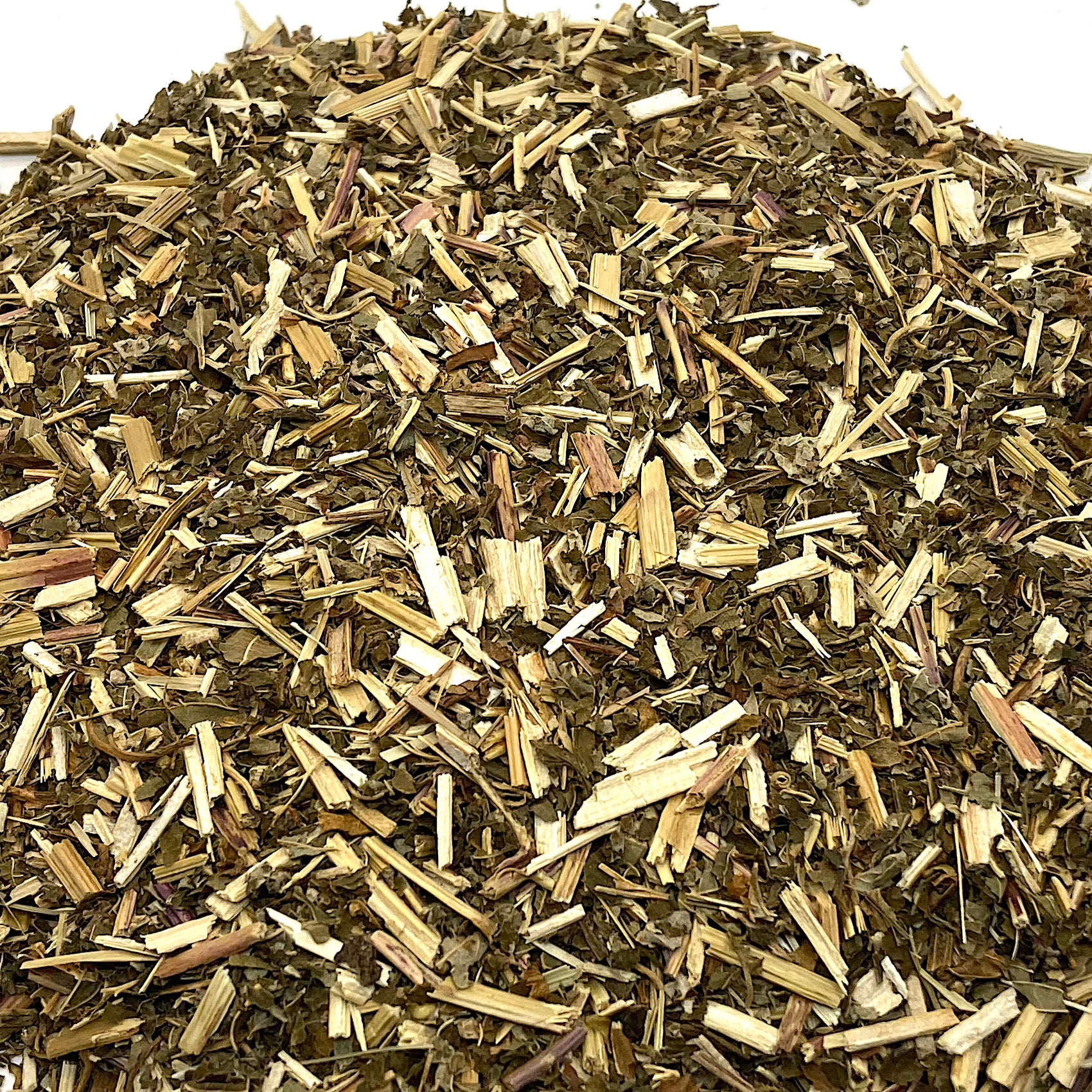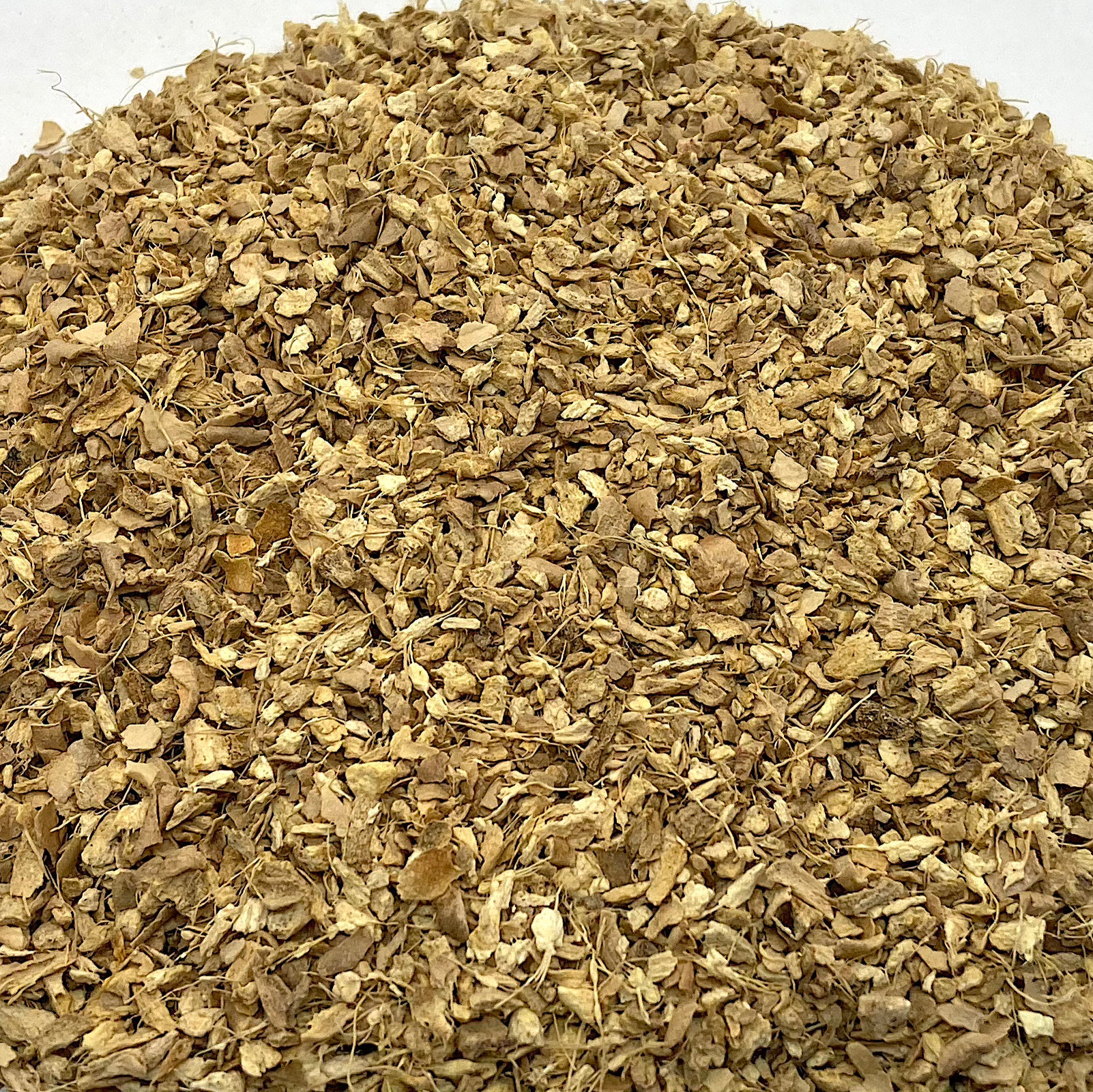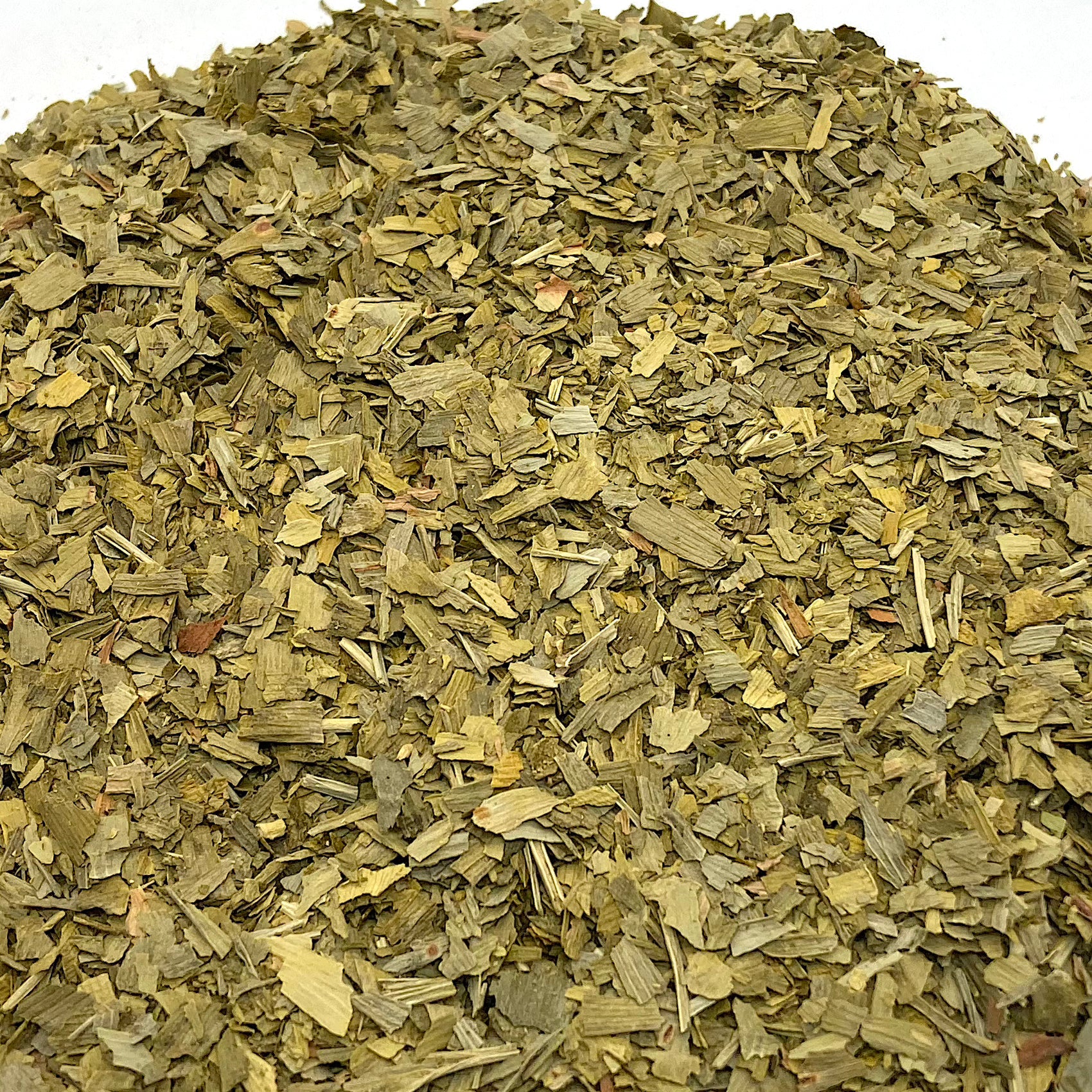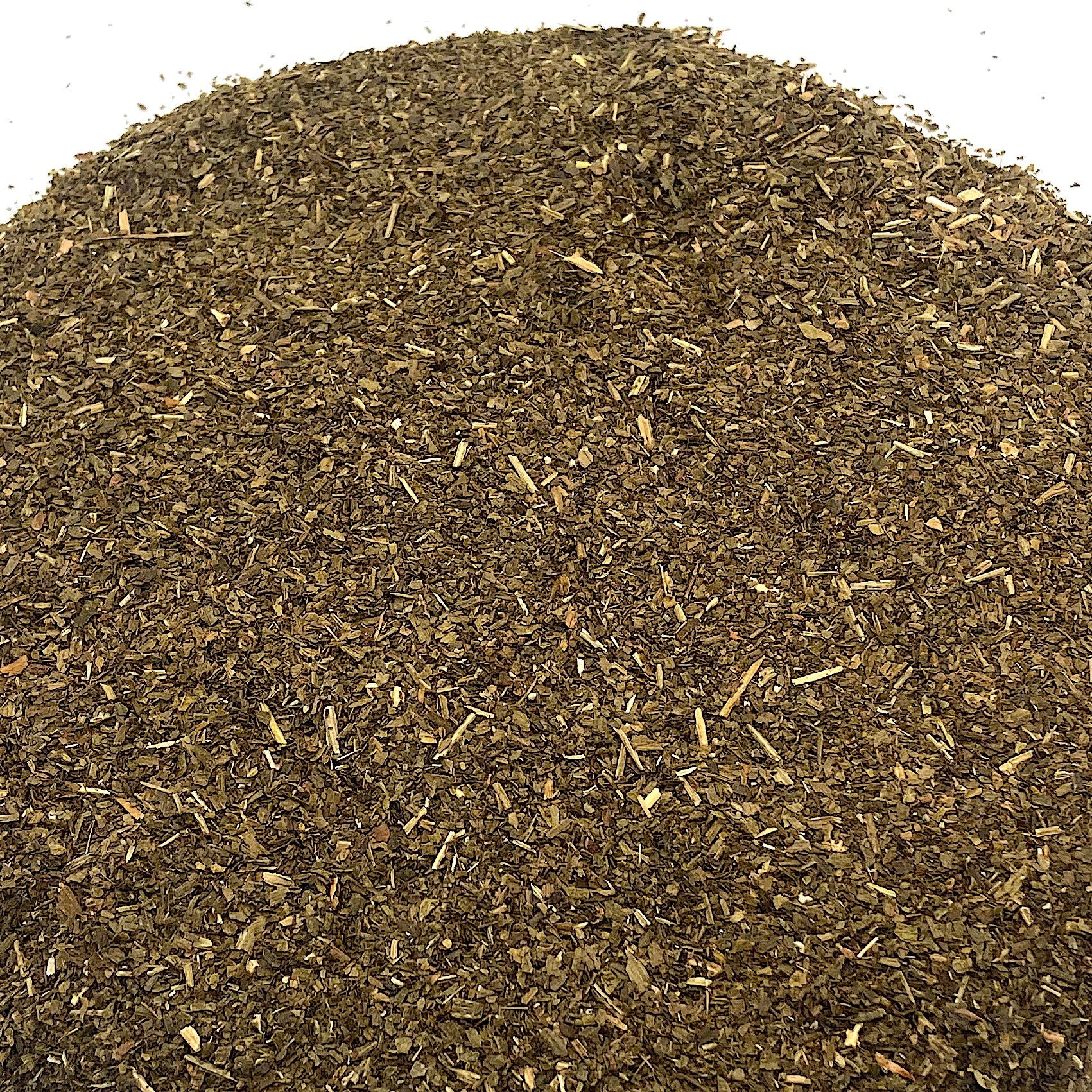Description
POLAND. Meadowsweet (Filipendula ulmaria), Cut and Sifted, Certified Organic
Common names: Meadsweet, Dolloff, Queen of the Meadow, Bridewort, Lady of the Meadow, Pride of the Meadow, Dropwort, Rios Cuchulainn
Family: Rosaceae
Meadowsweet is a perennial herb, growing from around 3 to 6 feet tall, that originated in Europe and western Asia, and is now found in North America as well. It grows in damp meadows and ditches, preferring partly shady conditions.
Meadowsweet contains aspirin-like compounds, and the product and the name aspirin were originally derived from the plant and its older botanical name, Spirea ulmaria. Like aspirin, the herb relieves pain and cools fevers. Unlike its pharmaceutical cousin, Meadowsweet is beneficial and soothing to the stomach and GI tract, and does not thin the blood. Herbalists use it for digestive issues such as ulcers, heartburn, nausea, and diarrhea, as well as arthritis and other joint and muscle pains, headaches, and colds.
Astringent, antibacterial, antiseptic, and immunomodulating, it promotes the flow of urine and the excretion of uric acid, and is given for bladder infections, fluid retention, and kidney problems. Mrs. Grieve suggests infusing an ounce of dried Meadowsweet into a pint of water and taking wineglassful doses.
Among Meadowsweet’s active components are volatile oils, including alicylaldehyde, ethylsalicylate, and methylsalicylate; phenolic glycosides; flavonoids; tannins; and vitamin C. And it's delicious!
*These statements have not been evaluated by the FDA. These products are not intended to diagnose, treat, cure or prevent any disease.








